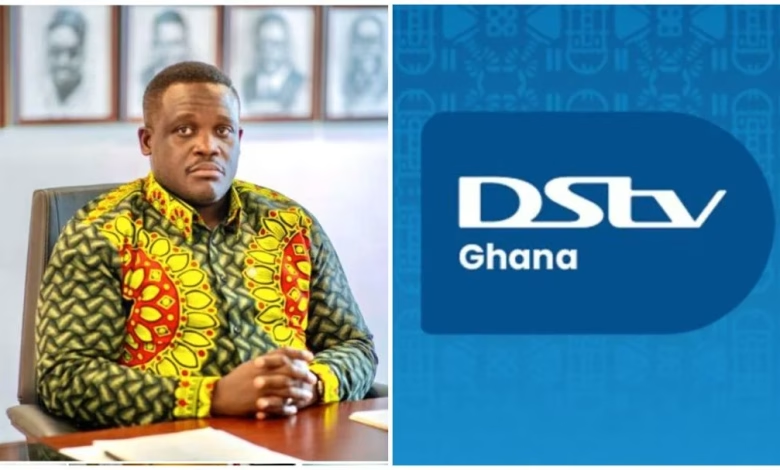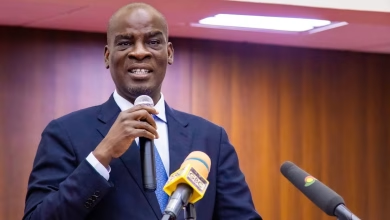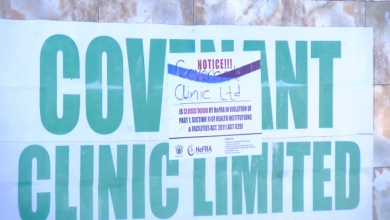Sam George issues ultimatum to Multichoice Ghana

- Cites over 40% cedi appreciation as basis for reversal of past price hikes
- NCA instructed to suspend license if no action by August 7
- Ghana’s DSTV premium ($82.41) far exceeds Nigeria ($29.05) and South Africa ($38.66)
Communications Minister Sam George has given Multichoice Ghana—operators of DSTV and GoTV—a deadline to reduce subscription fees or risk having their operating license suspended.
Citing the over 40% appreciation of the cedi in the first half of 2025, the Minister insists that subscription prices must reflect Ghana’s recent macroeconomic stability. The cedi, which opened the year at GH¢14.7 to the dollar, has since strengthened and stabilized between GH¢10.3 and GH¢10.5 since April. Multichoice has frequently blamed exchange rate pressures for past price hikes—a justification the government now expects to be reversed.
Following multiple discussions, the Communications Ministry directed Multichoice to implement a 30% price cut across DSTV packages. However, the company has rejected the directive, deeming it unreasonable.
In response, the Minister has instructed the National Communications Authority (NCA) to suspend Multichoice’s license by Thursday, August 7, if the company fails to comply.
The Minister also highlighted significant price discrepancies across Africa:
- Nigeria: DSTV Premium – $29.05
- South Africa: DSTV Premium – $38.66
- Ghana: DSTV Premium – $82.41
Though DSTV pricing is influenced by multiple factors—including taxation, market size, inflation, licensing costs, and consumer income levels—Ghana’s rates remain disproportionately high.
However, should the government push ahead without solid data or evidence of profiteering, it risks legal disputes or international arbitration.
Can the NCA Suspend DSTV’s License?
Yes—but only within legal bounds. Under Clause 13 of the Electronic Communications Act, 2008 (Act 775), the NCA may suspend or revoke licenses for reasons such as:
- Non-compliance with regulations or license terms
- Ignoring lawful directives
- Non-payment of regulatory fees
- Ceasing operations without notice
- National security or public interest concerns
- When a fine is insufficient
However, the law requires due process, including:
- 30 days’ written notice, explaining the grounds
- An opportunity for the company to respond or rectify the issue
- Consideration of any written objections
What’s Next?
Any suspension must adhere to this process—a rushed or unilateral move could expose the government to litigation. With the deadline looming on August 7, the public now watches closely to see whether Multichoice or the government will blink first.






